You are now seven weeks pregnant and have reached the middle of the first trimester. Most of these seven weeks passed before you even knew you were having a baby. So, now it’s time to get ready for the adventure ahead!
What changes can you expect during the seventh week in you and your baby? In this article, you can find all the answers to your questions, from nutrition and exercise to pregnancy symptoms and a pregnancy checklist.
Your Baby at Seven Weeks
When you reach the seventh week, you may wonder about your baby’s development, weight, length, the development of his organs, organ systems and senses, what skills he gains, etc.
How Big is My Baby?
In the seventh week, your baby is about the size of a blueberry. Although still very small, he has tripled in size compared to last week. His skull, in particular, has developed a lot and now makes up a large part of his body. This allows the brain to grow rapidly in the coming days.
You may be curious about your baby’s weight, but this is still very difficult to measure. However, it is possible to get some information about your little one’s physical properties and size through ultrasound imaging.
The average size of a seven-week-old embryo:
| Gestational Age | Length |
| 7 weeks | 12 mm |
Your baby may not be this size. There is no need to worry as long as your doctor says the embryo’s development is fine. Every baby is different.
The Development of Your Baby’s Organ Systems and New Skills
The first trimester is vital for your baby because the foundations for its different organs and organ systems are laid.
- The Nervous system
This week, the embryo’s brain is divided into three parts: the forebrain, midbrain, and hindbrain. At least 100 nerve cells are produced each minute. These cells will begin to connect in the coming days.
- The Endocrine System
The pituitary gland continues to develop.
- The Circulatory System
The formation of the tiny heart, which gives life to your baby’s small body, continues to pump blood frequently. The heart rate is 100-160 beats per minute. On ultrasound, your baby’s heart will be visible as a black dot in the middle of his body. In the seventh week of pregnancy, however, you may still be unable to hear and see your baby’s heartbeat during the ultrasound. If all else is well, this is no cause for concern. Your doctor will, however, ask you to come back the next week for another ultrasound.
- The Digestive System
This week, your embryo’s digestive system continues to form with the pancreas, gallbladder, oesophagus, and stomach.
- The Respiratory System
Your baby’s lungs continue their cellular development, and the trachea begins to develop. Your little one’s respiratory system continues to grow from the early beginning until the last day in the womb.
- The Musculoskeletal System
Your baby’s arms and legs, which started to form last week, continue to grow and have the shape of paddles. Also, the fingertips begin to form. Joint structures such as wrists, elbows and knees start to develop, but you have to wait a while for their full development.
- The Urinary System
The kidneys, among the most important urinary organs, begin forming during week seven. However, their development is not sufficient for urine production and discharge yet. The intestines become more prominent and continue to elongate.
- The Reproductive System
Although the reproductive organs are developing, they need to mature more to be seen on ultrasound. You will have to wait another while before you can find out the sex of your child.
- The Immune System
The organs of the immune system have not yet begun to develop. Until 40-42 weeks, the amniotic sac and fluid protect your baby against external factors.
Your Baby’s Movements at Seven Weeks
It isn’t easy to view any movements on ultrasound at this time of gestation. With a length of about 12 mm, the embryo still has a microscopic structure, so even if it moves, it is impossible to see or feel.
A Seven-Week-Old Embryo’s Sense Organs
Your baby’s sense organs also continue to develop day by day.
- The Eyes and the Sense of Sight
The eye sockets, which started to form the previous week, continue to develop, and the eyelids are about to be completed.
- The Ears and the Sense of Hearing
The ear cavities continue to develop. In the following weeks, they will start looking like real baby ears.
- The Tongue and the Sense of Taste
Your baby’s tongue and mouth have started to form, although they are still very small. It is still too early for the development of the taste buds on the tongue.
- The Nose and the Sense of Smell
This week, the facial area becomes more prominent. The tip of your baby’s nose and nostrils begin to form.
- The Skin and the Sense of Touch
Your baby’s skin has not yet formed. The surrounding amniotic fluid protects this vulnerable being.
How Many Months is Your Seven-Week-Old Baby?
You are still at the beginning of your pregnancy journey and have reached the middle of the first trimester, which lasts from weeks one to thirteen.
So, if you are seven weeks pregnant, how many months is this?
You can calculate it like this:
7 weeks = 7×7 = 49 days
49/30 = 1 month 19 days
According to this calculation, you are exactly 1.5 months pregnant. This means that you are in the second month of pregnancy.
Your Body at Seven Weeks of Pregnancy
As you reach the seventh week, the symptoms you experience may clearly remind you that you are pregnant. In this respect, the first trimester is the most challenging for expectant mothers as their body tries to adapt to this huge change.
So, what should you be prepared for? What is happening in your body?
- Indigestion, Bloating and Heartburn
Even though your baby is not big enough to cause a baby bump, you may notice that your tummy is swollen when you look in the mirror. This is not because of your baby. Rather, pregnancy hormones may cause digestive issues, such as bloating and indigestion. These are among the first signs of pregnancy. Beta-HCG and progesterone, which rise rapidly in the blood, can reduce bowel movements and cause gas. They also change the stomach pH and loosen the valve between the oesophagus and the stomach, causing reflux and heartburn. These problems will ease a little in the coming months.
- Nausea
Some pregnant women may start experiencing nausea this week, although it may also appear a little later. Nausea and vomiting, perhaps the most troublesome pregnancy symptoms, usually disappear in the second trimester.
- Mood Swings
The intense hormonal changes in your body can create mood swings. This week, sudden irritability, anger, excessive emotionality, anxiety, and worries may increase.
- Frequent Urination
The increased fluid volume, metabolic rate, and waste processing in the kidneys may cause an increased urge to urinate. This issue may become more prominent in the following weeks when the pressure of the baby on your bladder increases. However, remember not to reduce your fluid consumption because of this!
Tips to Minimize the Annoying Pregnancy Symptoms!
The rapid increase of hormones can give you a difficult time. Below, you can find some advice to spend these exciting days more comfortably:
- Make sure to eat a healthy diet.
- Avoid consuming excessively oily and spicy foods.
- Keep some crackers or light, salty snacks by your bedside and have some first thing in the morning to suppress morning sickness.
- Eat at frequent intervals and in smaller portions.
- Stop or reduce the consumption of tea and coffee.
- If you experience intense nausea and vomiting, ask your doctor for suitable medication.
- Try to prevent digestive issues by eating a fibre-rich diet and consuming plenty of fluids.
- To avoid frequent urination during the night, consume fewer fluids before going to bed. However, never reduce your overall fluid intake and drink enough water during the day.
- Try to stay away from nauseating smells.
How Much Weight Should You Gain?
You will probably not gain much weight in the first trimester for two reasons:
- Your baby doesn’t weigh much, and the structures that feed him (uterus, sac, amniotic fluid, etc.) have not grown much. Together, they don’t make a significant difference to your body weight.
- Symptoms such as nausea and vomiting may cause a loss of appetite, preventing weight gain. Some pregnant women even lose weight in the first three months. This is quite normal.
Nevertheless, some pregnant women gain weight due to bloating or increased appetite. Experts agree that it is fine to gain 1-2 kilos by the seventh week of pregnancy but that you should prevent excessive weight gain in the first trimester by sticking to a healthy diet.
Nutrition at Seven Weeks of Pregnancy
Nutrition plays a crucial role during all stages of pregnancy. During the first trimester, the foundations of your baby’s organs are laid, increasing the need for different vitamins and minerals. Later in pregnancy, your baby will get its nutrients from you, causing your nutrient stores to be depleted. Therefore, it is crucial to adopt a nutrient-dense diet from the moment you learn you are pregnant.
- Pay attention to a healthy and balanced diet. Make sure your meals include food from every food group.
- Consume a diet rich in vitamins and minerals such as iron, B12, folic acid, protein, calcium, magnesium, and vitamin C, which all play an important role in pregnancy.
- Make sure to drink 2.5 litres of water every day.
- Do not consume empty calories, unhealthy fats, and fast food.
- Avoid acidic and carbonated drinks. Instead, opt for beverages such as mineral water and fresh juice.
- Thoroughly wash and clean raw vegetables, fruits, and leafy greens.
- Try to consume fish twice a week. Opt for fish that does not contain high amounts of heavy metals.
Exercise at Seven Weeks of Pregnancy
Exercising does not only keep you fit or help you to lose weight. It also allows you to relax your body and mind. Therefore, it is all the more important in such a crucial period in your life.
At seven weeks, the following physical activities are ideal:
- Pregnancy Pilates
- Pregnancy Yoga
- Walking
- Swimming
- Muscle-strengthening exercises (with your doctor’s approval)
- Breathing exercises
- Relaxation and stretching movements
Consult your doctor about your exercise programme. Not all exercises are suitable for every expectant mother, especially if you have a high-risk pregnancy.
Seven-Week Pregnancy Checklist
- Make sure to do the first tests and examinations as you learn about your pregnancy, like a Pap smear and a urine and blood test. An early diagnosis of health problems is important for both mother and baby.
- Take a critical look at your care products and cosmetics. Harmful chemicals in some of these products can pass directly to the baby and negatively affect its development. Make sure that the products you use during pregnancy contain only natural ingredients. Researching this well is key.
- Do not use any medications without your doctor’s approval. If you currently use any prescription drugs, ask your doctor whether they are safe.
In the seventh week of pregnancy, your baby is developing fast, and your body and mind are trying to adapt to this huge change. Do not hesitate to ask your doctor any questions on your mind. And start planning to share the good news with your loved ones!


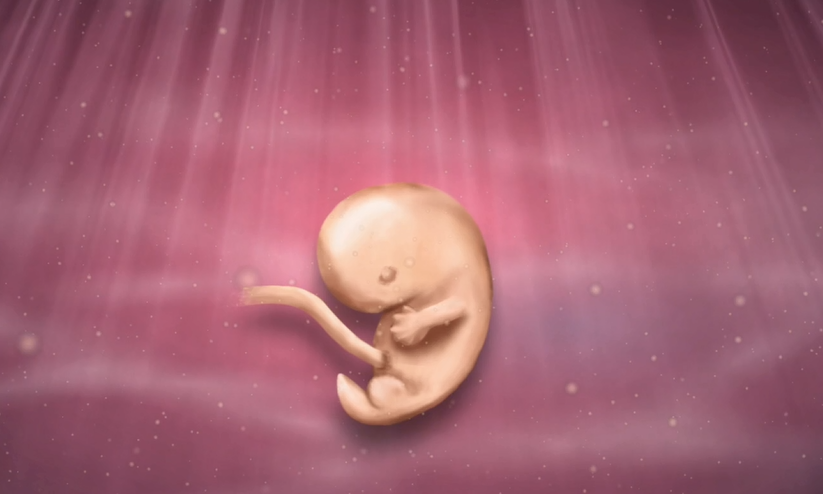
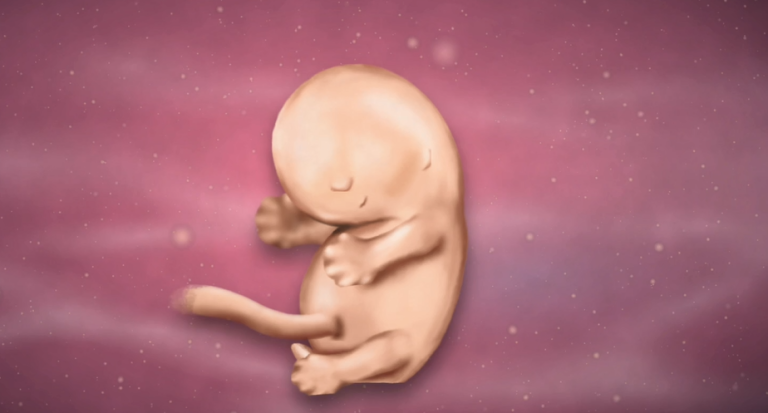
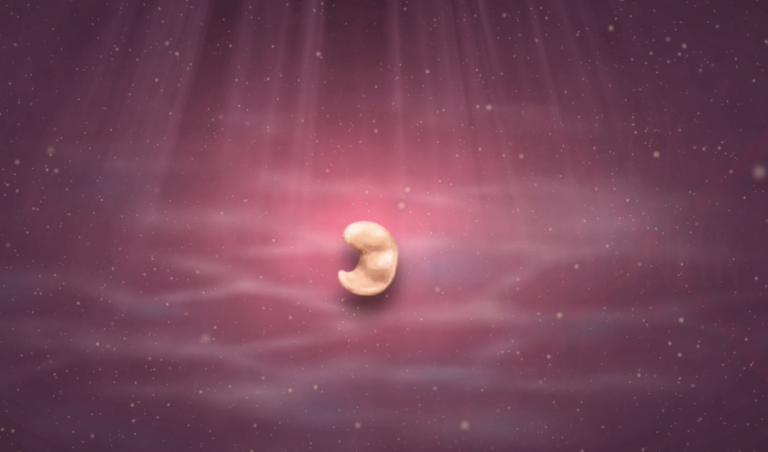
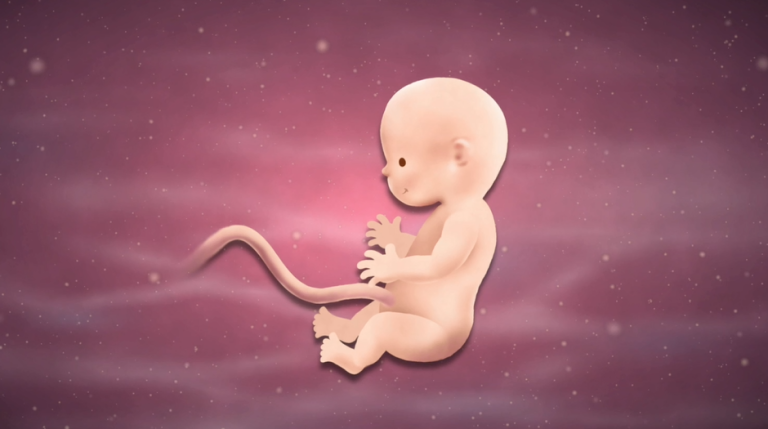
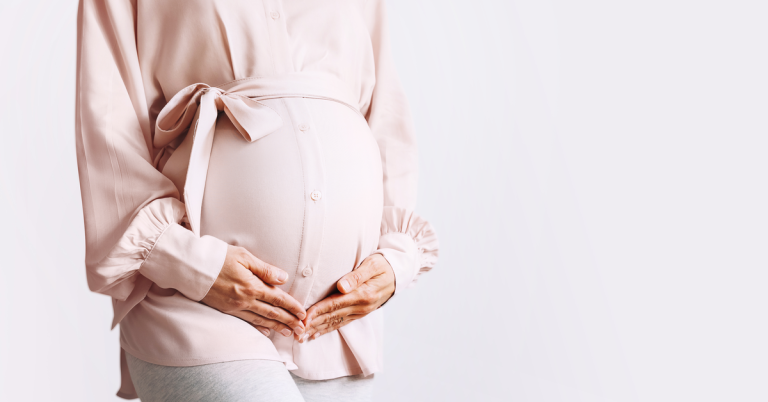

Heya i am for the primary time here I came across this board and I find It truly useful & it helped me out much I am hoping to provide one thing back and aid others like you aided me
Thank you, Benedict! Lovely to hear your kind words. <3